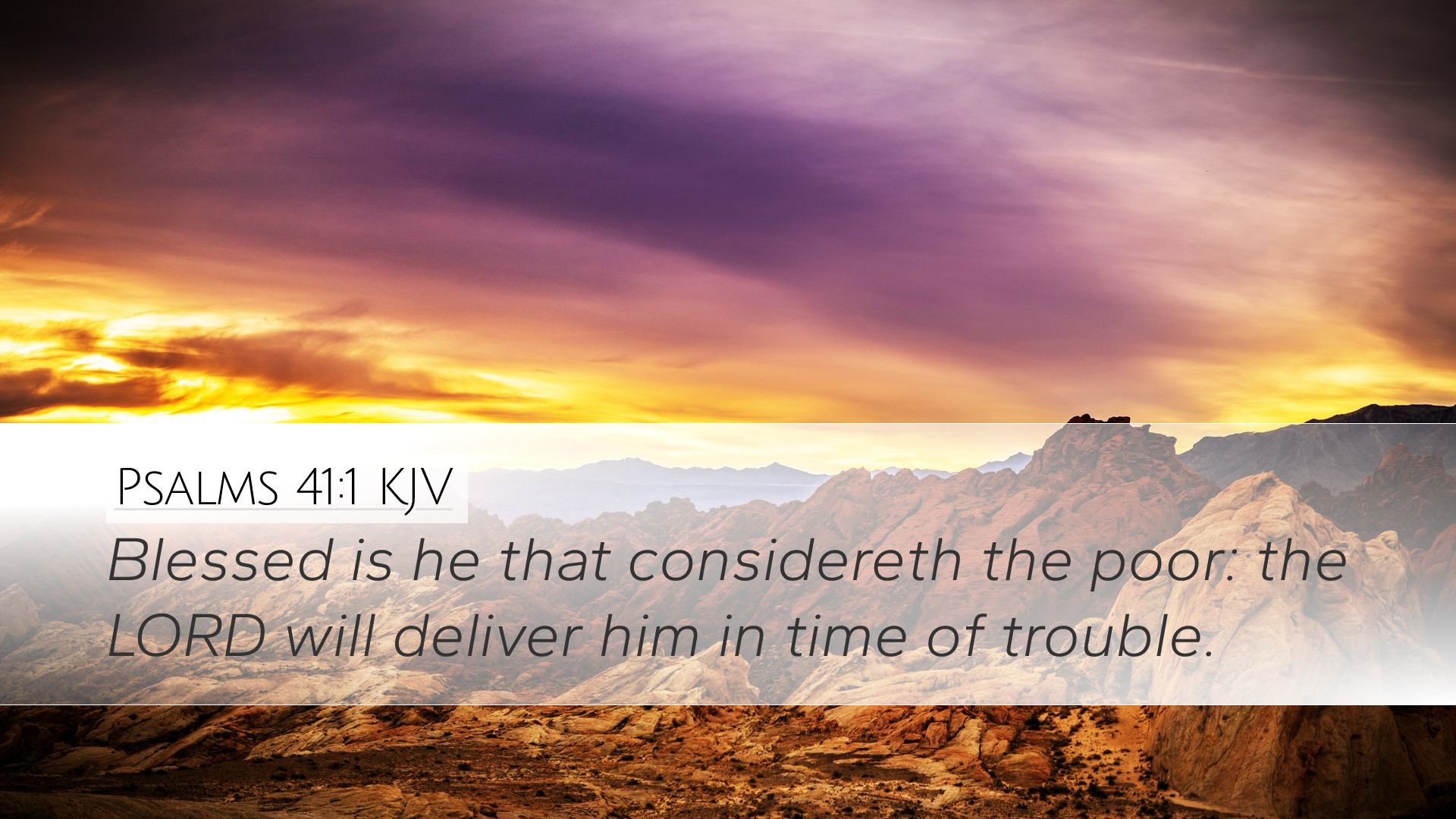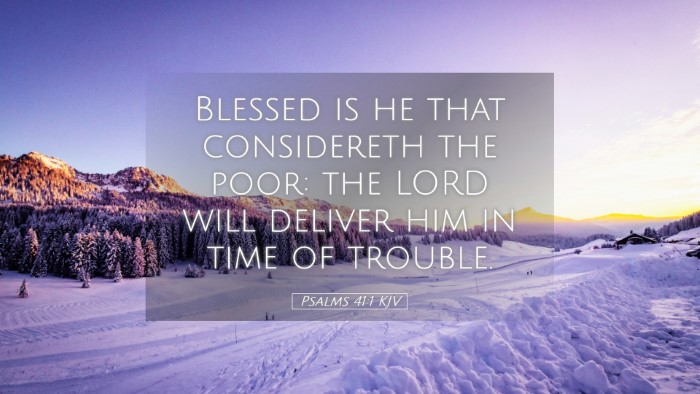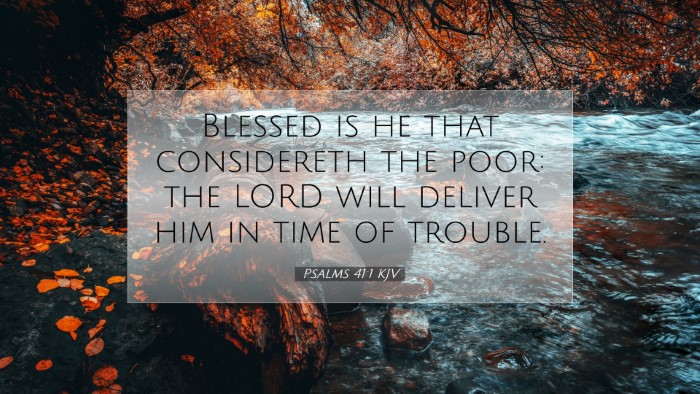Commentary on Psalms 41:1
Psalms 41:1 states: "Blessed is he that considereth the poor: the Lord will deliver him in time of trouble."
Introduction
This verse opens up a profound exploration of God's compassion towards both the poor and those who care for them. Throughout the Psalms, this theme of divine favor for the marginalized is prevalent. In this commentary, we will draw insights from notable public domain scholars including Matthew Henry, Albert Barnes, and Adam Clarke to elucidate the spiritual, theological, and practical dimensions of this passage.
Textual Analysis
In examining the text, we find that the term "poor" extends beyond material poverty. It encompasses those who are often oppressed, afflicted, and in need of assistance. The Hebrew word translated as “poor” (רָשָׁ) indicates vulnerability and helplessness, which invites a broader understanding of what it means to be blessed by God.
Commentary Insights
Matthew Henry’s Perspective
Matthew Henry emphasizes that "to consider the poor" goes beyond mere acknowledgment; it calls for active engagement. He notes that the “blessed man” is one who exhibits mercy and charity, as it evidences a heart aligned with God's own compassion.
- Divine Favor: Henry asserts that the one who considers the poor is favored by God, capturing the image of God's providential care in their own times of trouble.
- Reflection of God’s Character: The psalmist's declaration highlights that benevolence towards the poor aligns one's character with that of God, who is frequently described as a defender of the weak.
Albert Barnes’s Insights
Albert Barnes elaborates on the assurance that God delivers those who show kindness to the needy. His interpretation points towards a mutual relationship wherein God’s deliverance to the compassionate is a reflection of His justice.
- Kairos of Deliverance: Barnes notes that the “time of trouble” symbolizes not just physical peril but spiritual distress as well, indicating that God’s help comes in various forms of adversity.
- Call to Action: He admonishes readers to cultivate a concern for those less fortunate, arguing that such actions have eternal significance in the Kingdom of God.
Adam Clarke’s Analysis
Adam Clarke’s commentary reiterates the connectedness of human compassion and divine blessing. He urges that the principle of caring for the poor is integral to true religion, and he believes that God’s response to our kindness is abundant and redemptive.
- Faith in Action: Clarke elucidates the necessity of translating faith into social action, linking our response to the disadvantaged as a testimony of our trust in God’s provision.
- Eschatological Perspective: He also suggests that caring for others is a preparatory step for the believer, aligning with the teachings of Jesus in the New Testament regarding acts of mercy.
Theological Implications
From the combined insights of these esteemed commentators, several theological implications emerge:
- Justice and Mercy: This verse encapsulates the biblical tension between justice and mercy. In his case for justice, God rewards the compassionate, which invites believers to embrace both attributes in their faith journey.
- Social Responsibility: The verse calls upon God’s people to advocate for social justice. True faith must be demonstrated tangibly through serving the poor, fulfilling God's command in a practical manner.
- Covenantal Relationship: There is a clear connection between one's actions and one's standing before God. Engaging with the needy is not only a moral obligation but a covenantal affirmation with the Lord.
Practical Applications
This verse offers rich avenues for application for pastors, students, theologians, and Bible scholars:
- Preaching and Teaching: Pastors can incorporate this theme of social concern into sermons, emphasizing God's heart for the poor and the correlation of such care with divine blessing.
- Academic Study: Theologians can delve deeper into the socio-historical context of this Psalm, exploring how ancient Israelite society treated the poor and the theological ramifications for contemporary practice.
- Community Engagement: Students and church communities should seriously consider outreach initiatives that envision holistic care for the poor, serving not just spiritual needs but physical and emotional ones as well.
Conclusion
Psalms 41:1 is a profound reminder of the integral relationship between our actions toward the needy and our standing before God. The blessings promised herein illuminate God's character while challenging us to embody that character in our daily lives. As we reflect on the insights gathered from Henry, Barnes, and Clarke, may we be encouraged to take heart in our actions, knowing that our care for the poor aligns us with God's favor and ultimately enriches our spiritual journey.


